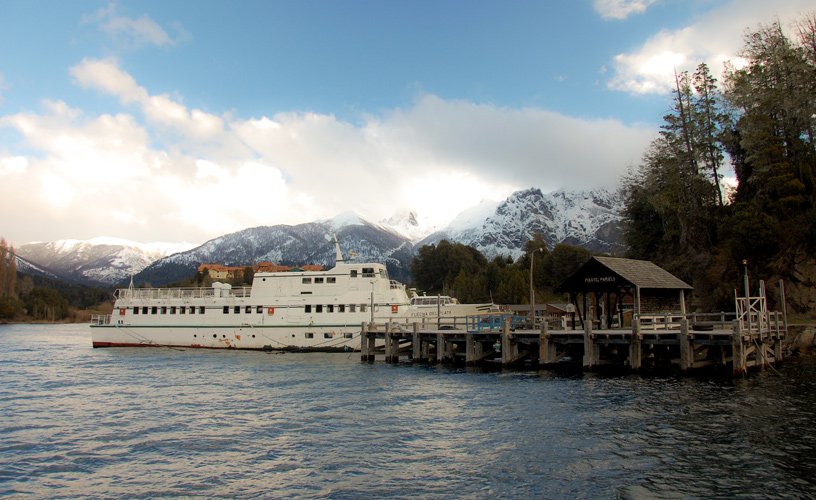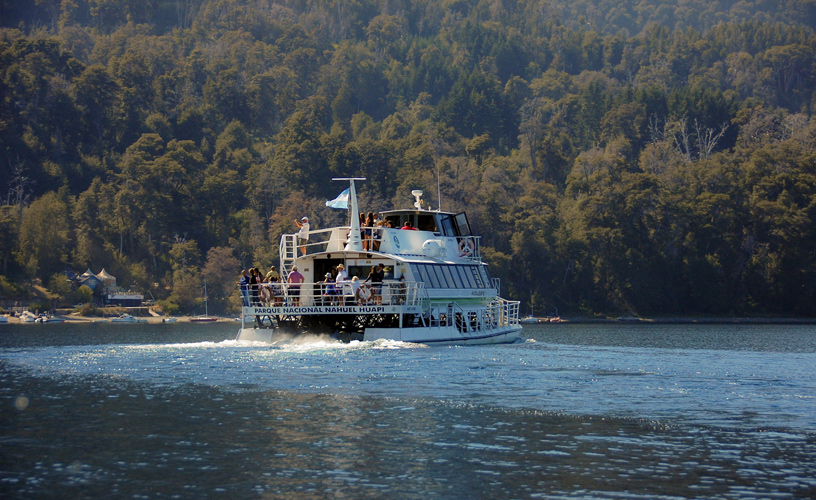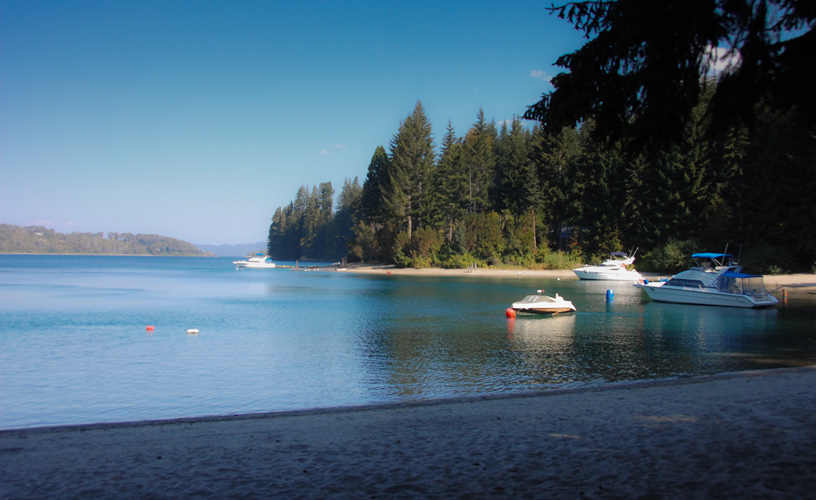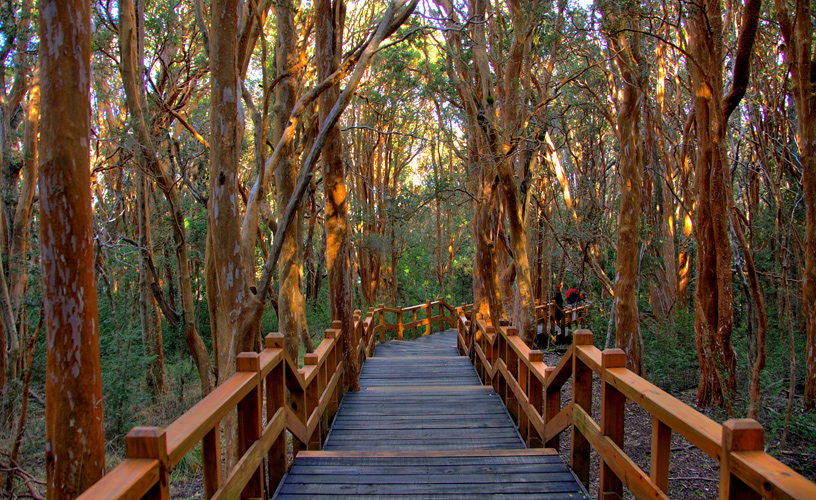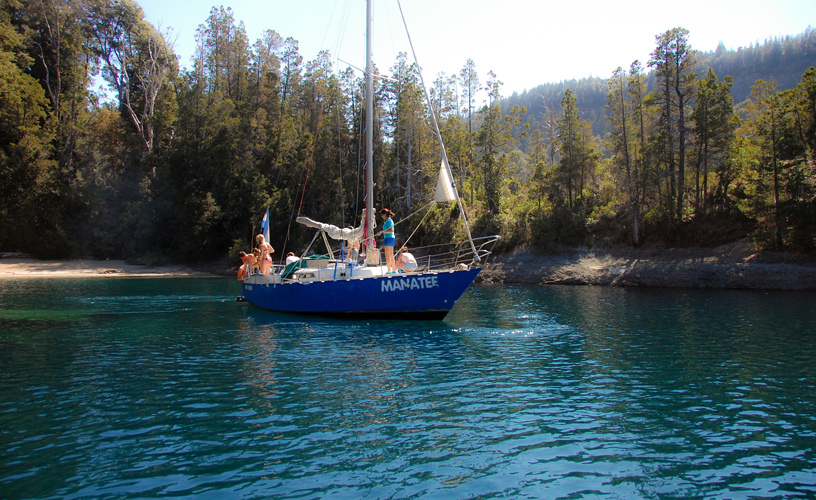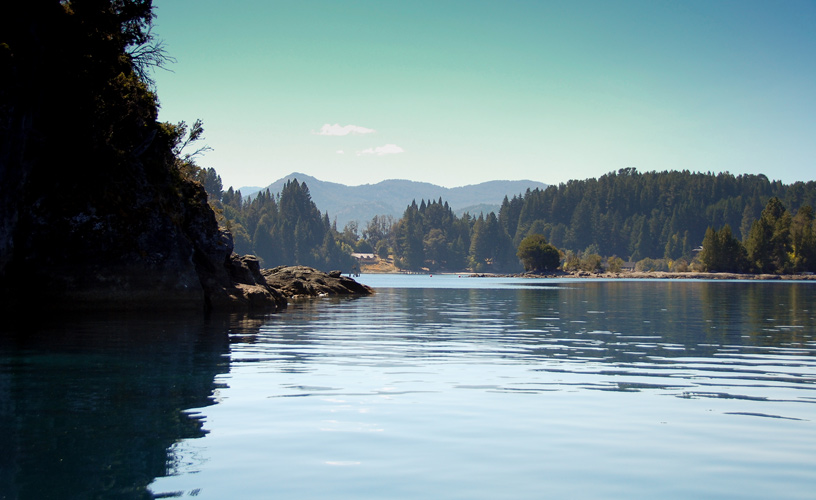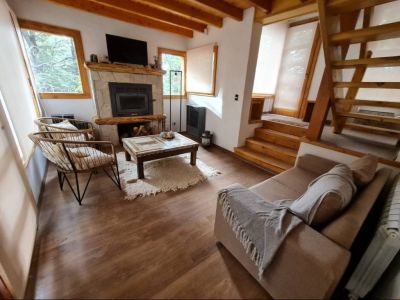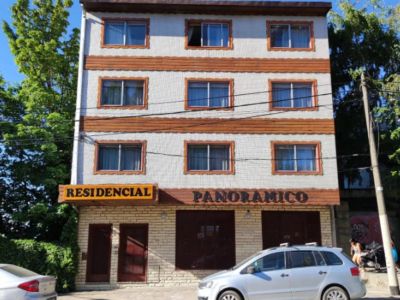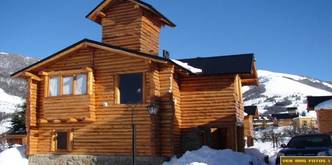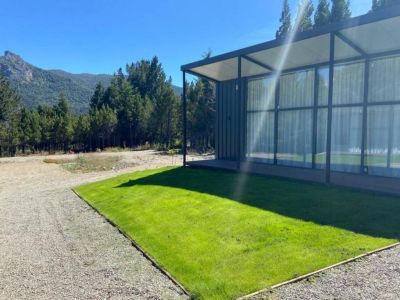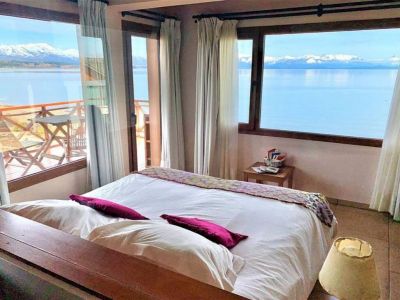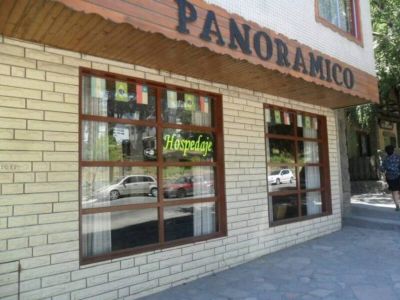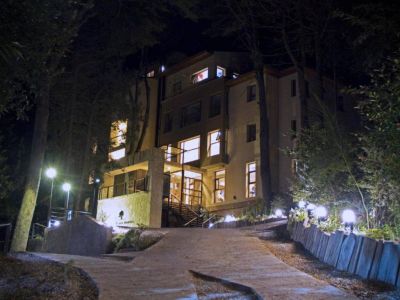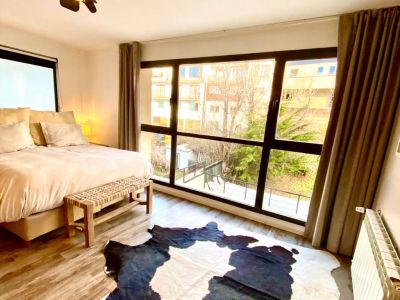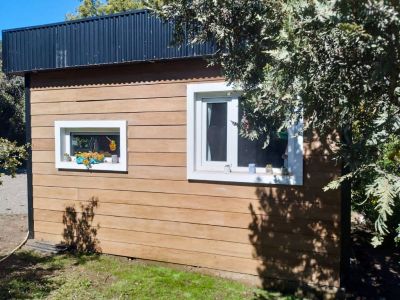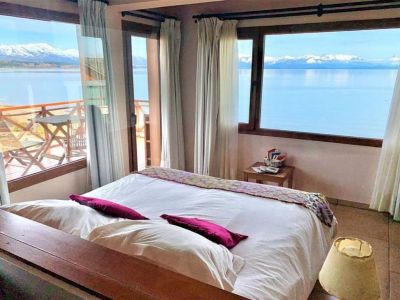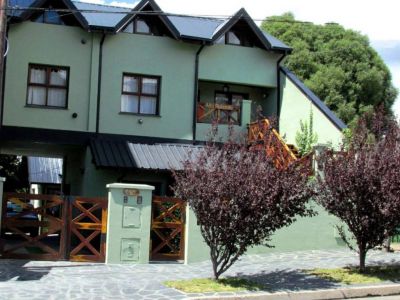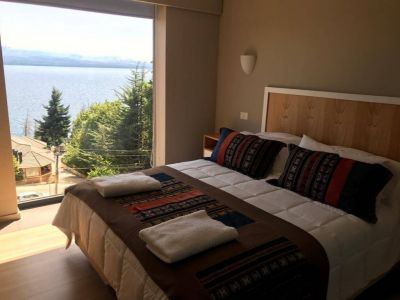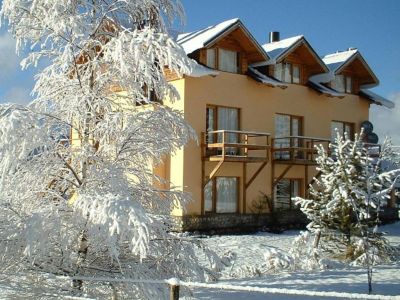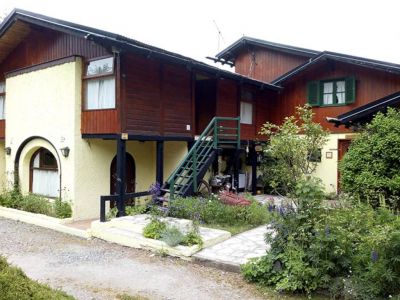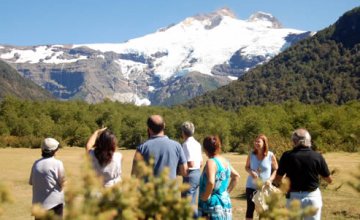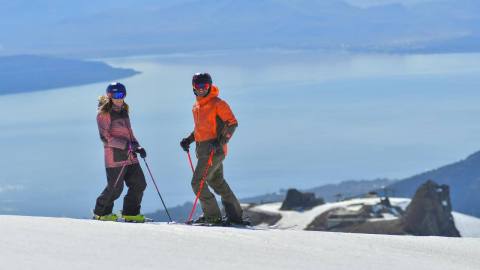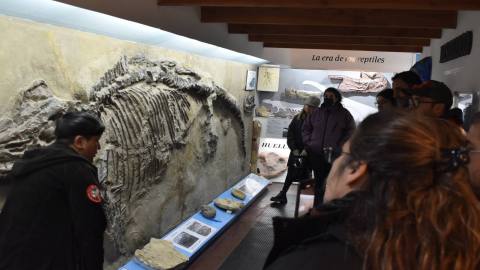The boat tour to the island takes approximately 30 minutes. We covered 11 kilometers of impressive natural wonders until we got to Puerto Anchorena. As we sailed across Lake Nahuel Huapi, we watched the color of its waters, the green vegetation on the shores and the snow-capped mountains sticking out from the horizon. That scenery is the result of millions of years of geological activity. Once on the island, dazzled by the incredible natural beauty, we started our tour. Thousands of years ago, this place was dwelled by natives who left track of their presence. This is evidenced by the cave paintings existing on the island. We saw the different wildlife species while we hiked down the trails that led us around giant sequoias, thujas, eucalyptus, pines and oak trees, along with cypresses, coihues and ñires. This is the perfect habitat for pudúes, wild boar, red deer, pheasants and a wide range of birds. In the canopies, we spotted an imperial shag.
Isla Victoria and Arrayanes Forest
Del Toro Beach, Puerto Gross, Radal and Piedras Blancas are great sites to visit on this 3,710-hectare island whose maximum length is 20 kilometers and its width is 4. The island is divided into three areas. Only the central area is open for tourists. The other two are intangible. We left Victoria Island and continued sailing for approximately 30 minutes until we reached Puerto Quetrihue, located to the south of the peninsula bearing the same name. At this spot, we found a thick almost pure myrtle tree forest, called Bosque de arrayanes in Spanish. This is a unique tree due to its very smooth cinnamon-color bark that features fair reddish marks as it peels off. This provides distinctive hues in the forest. Towards the end of the summer, the myrtle trees bloom into white flowers that will turn into shiny black fruit in the fall. This is a perfect spot for this tree to develop, as it needs plenty of water. Specimens reaching 15 meters of height stand out. Some of them can live for between 500 and 650 years.
Pablo Etchevers
Jorge González
